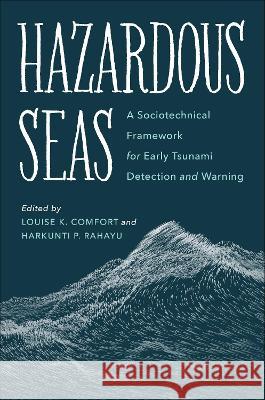Hazardous Seas: A Sociotechnical Framework for Early Tsunami Detection and Warning » książka
Hazardous Seas: A Sociotechnical Framework for Early Tsunami Detection and Warning
ISBN-13: 9781642831634 / Angielski / Miękka / 2023 / 384 str.
Tsunamis are infrequent but terrifying hazards for coastal communities. Difficult to predict, they materialise with little warning, claiming thousands of lives and causing billions of dollars in damage. Recent mega-tsunamis in Japan and Indonesia claimed close to 250,000 lives, triggering wide-scale economic and social disruption. Developing countries cannot afford costly underwater cable systems, and governments and relief organisations have been forced to rely on flawed warning systems such as deep-sea buoys. Now, a ground-breaking new approach to tsunami detection and warning, which relies on low-cost underwater sensors and networks of smartphone communication, has changed the equation. Developed by an international, interdisciplinary team of researchers, this approach allows at-risk coastal communities to have an economically viable, scientifically sound means to protect themselves. Coeditors Louise K. Comfort and Harkunti P. Rahayu, accomplished experts in disaster preparedness, contend that it will give communities precious additional minutes to communicate warnings about imminent tsunamis to residents, potentially saving many lives. Chapters authored by a close group of collaborators present the science behind this new approach, describing conceptual design, computational models, and real-time testing of a prototype system in the warm equatorial waters of Indonesia’s Mentawai Sea. Introductory chapters explain the sociotechnical approach - how undersea sensors can transmit data to a network of electronic devices on land to alert residents to impending tsunami threats in near-real time. Subsequent chapters explore what this might look like: assessing communities at risk; designing interactive information systems for communication during an emergency; designing wireless networks for smartphone communication that can guide residents to safety; and designing community-based shelters. The book concludes with a thoughtful analysis of how these sociotechnical advances might be used for all coastal cities at risk of tsunamis, sea-level rise, storm surges, and other hazards. Hazardous Seas is an invaluable guide for policy makers and international NGOs looking to save lives from tsunamis and mitigate crippling damage to communities, and provides a comprehensive overview of tsunami detection and warning for students of engineering, computer science, planning, policy, and economic and environmental analysis.











